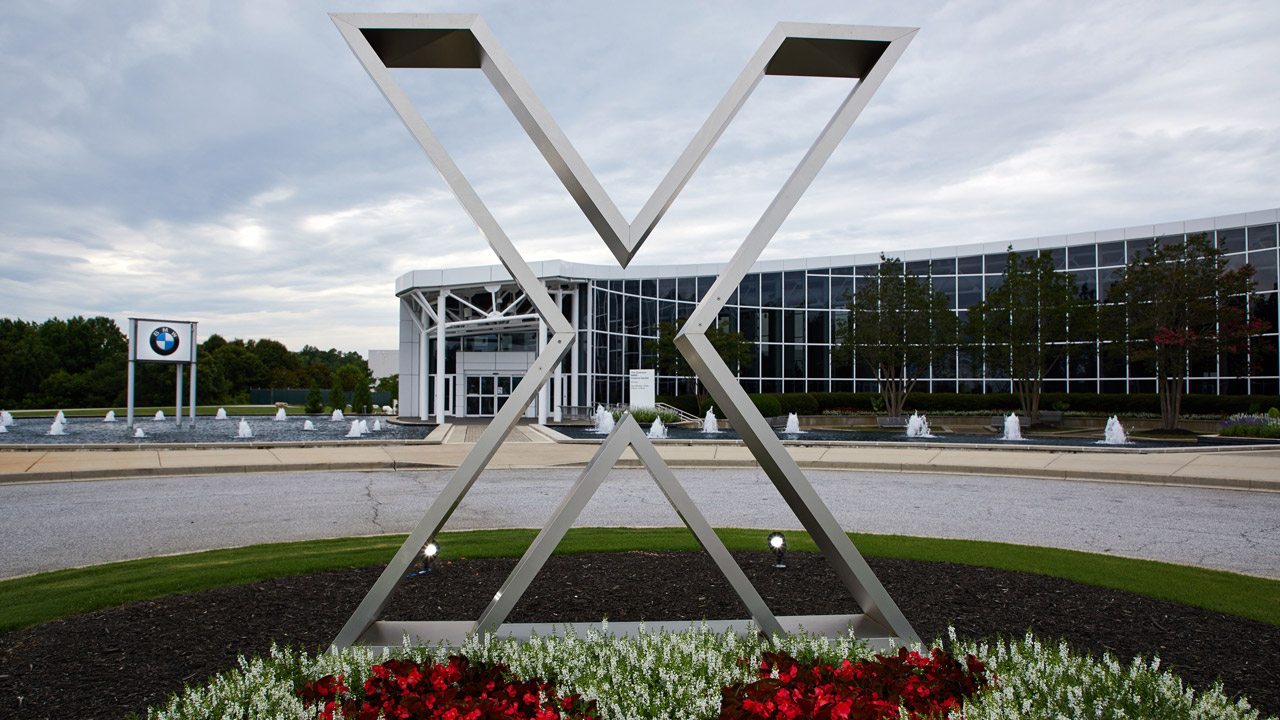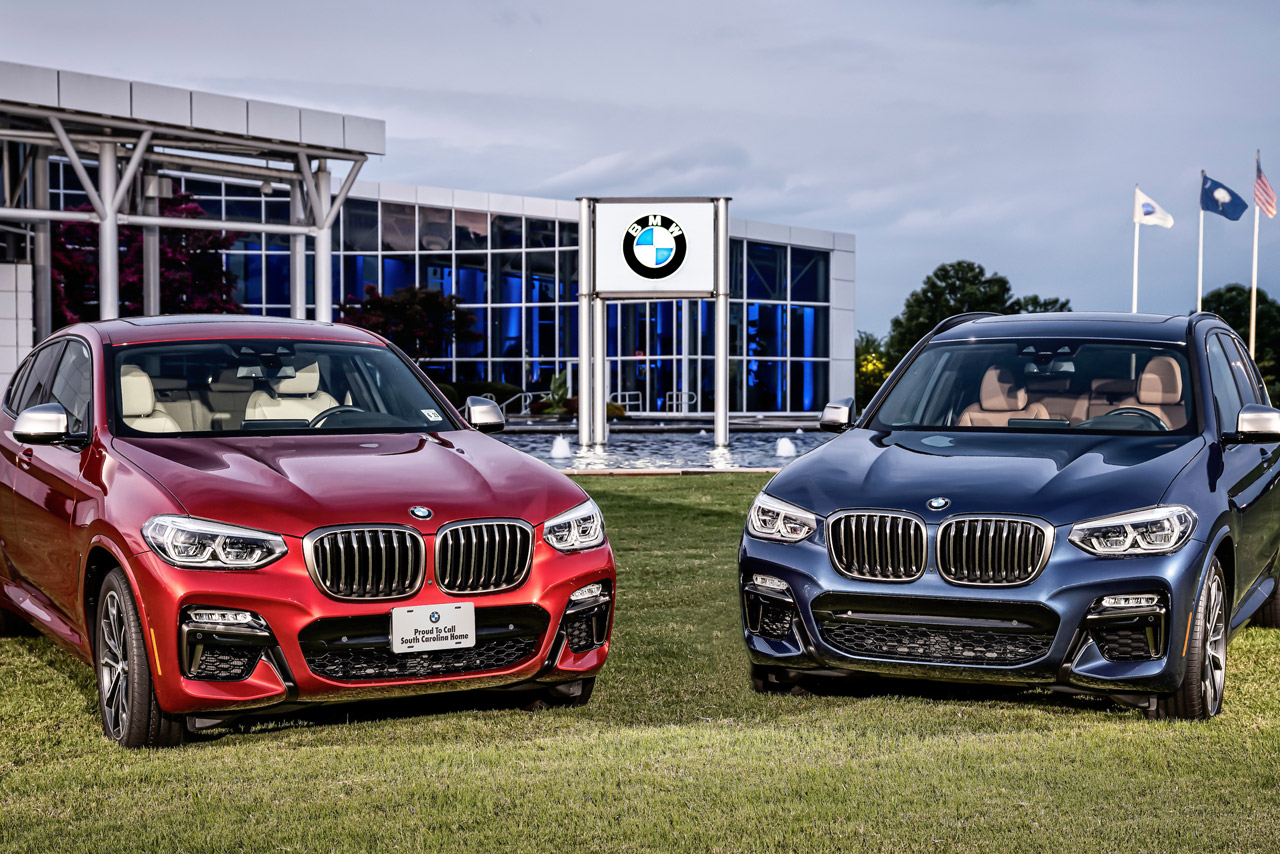Twenty Year Anniversary: BMW Manufacturing’s Landfill Gas-to-Energy Project Continues to Power Factory.
- Landfill Gas Accounts for 20% of Plant Spartanburg’s Total Energy Needs.
- On the 20th Anniversary, Plant Spartanburg Extends Its Partnership with Ameresco Eight Additional Years.
- More Than 9,200 Tons of CO2 Emissions Reduced Each Year.
Spartanburg, S.C. For decades, the BMW Group has been using innovative technologies in its efforts to improve sustainability. It was 20 years ago that BMW Manufacturing started using recycled methane gas from a local landfill to provide electricity and hot water for the plant. The result of this groundbreaking idea: more than 9,200 tons of CO2 emissions have been reduced each year, which is equivalent to eliminating CO2 emissions from vehicles driving 23.5 million miles every year. Currently, about 20 percent of Plant Spartanburg’s total energy needs (electricity and heat) are provided by landfill gas.
Because of the great success of this project, BMW Manufacturing announced today that it will extend its partnership with Ameresco, Inc. for an additional eight years. Ameresco constructed the 9.5-mile pipeline from the Palmetto Landfill to Plant Spartanburg. This means nearly 74,000 tons of CO2 emissions will be reduced over the next eight years.
“For two decades, this project has been a win-win for Upstate South Carolina. It greatly reduces CO2 emissions, resulting in cleaner, healthier air for everyone to breathe,” said Dr. Robert Engelhorn, president and CEO of BMW Manufacturing. “Intelligent resource management and the fight against climate change are expressions of our sense of responsibility. The BMW Group will reduce CO2 emissions per vehicle by 40 percent from 2019 levels by 2030 across the spectrum.”
“The old saying that ‘one person’s trash is another person’s treasure’ is literally true for our landfill gas-to-energy project,” said Manfred Pernitsch, vice president of Real Estate Management and Environmental Protection for the Americas. “This project has greatly reduced greenhouse gas emissions and air pollution for two decades. We have used the energy produced by our turbines to heat the office and production areas as well as heat our water, saving BMW several million dollars each year.”
When the partnership began, Ameresco designed and built the 9.5-mile pipeline from the Palmetto Landfill to Plant Spartanburg as well as the gas processing and compression facilities.
“When we look back to the start of this partnership more than 20 years ago, sustainability was in its infancy. While it was not a common topic in many Corporate America board rooms, it was for our partners at BMW. We are excited to be celebrating the renewal of an innovative project engagement that was far ahead of its time,” said Michael Bakas, Ameresco’s Executive Vice President. “We are also grateful for the many core team members at BMW whose passion for sustainability resulted in a best-in-class project to harness the power of biogas solutions to usher in a cleaner era for the auto industry.”
According to the U.S. Environmental Protection Agency website, landfills are the third-largest human-generated source of methane emissions in the United States. Methane gas is a natural byproduct of the decomposition of organic materials in landfills. It is also a potent greenhouse gas that is a key contributor to global climate change. Reducing methane emissions, the EPA says, is one of the best ways to mitigate climate change.
Instead of “flaring” or burning off the methane gas, the BMW project captures the methane produced at the landfill using dozens of gas extraction wells. The gas is then treated to remove moisture and impurities and is compressed at the landfill’s Recovery and Compression Station. The methane then travels through a 9.5-mile pipeline from the landfill to Plant Spartanburg.
At the plant, the methane gas is cleaned and compressed again; then it’s fed into two efficient gas turbines at the plant’s Energy Center. The turbines generate electricity and heat water throughout the eight million-square-foot Spartanburg plant.
Since 1992, the BMW Group has invested nearly $12.4 billion in its South Carolina operations. BMW Manufacturing is the largest BMW Group plant in the world, producing more than 1,500 vehicles each day. The plant is an important part of BMW’s global production network and plays a critical role in meeting the high demand for BMW Sports Activity Vehicles and Coupes in the U.S. and around the world. Nearly 60 percent of its vehicles are shipped to about 120 global markets, making BMW the largest automotive exporter by value in the United States for nine consecutive years. In 2022, more than 60 percent of BMW vehicles sold in the U.S. came from Plant Spartanburg. The model portfolio includes six top-selling BMW X models, five Motorsport X models, and three plug-in hybrid electric vehicle X models. The factory has an annual production capacity of up to 450,000 vehicles and employs more than 11,000 people.
Please Note:
To the extent that historical press releases reference BMW Manufacturing Co., LLC as the manufacturer of certain X model vehicles, the referenced vehicles are manufactured in South Carolina with a combination of U.S. origin and imported parts and components.


